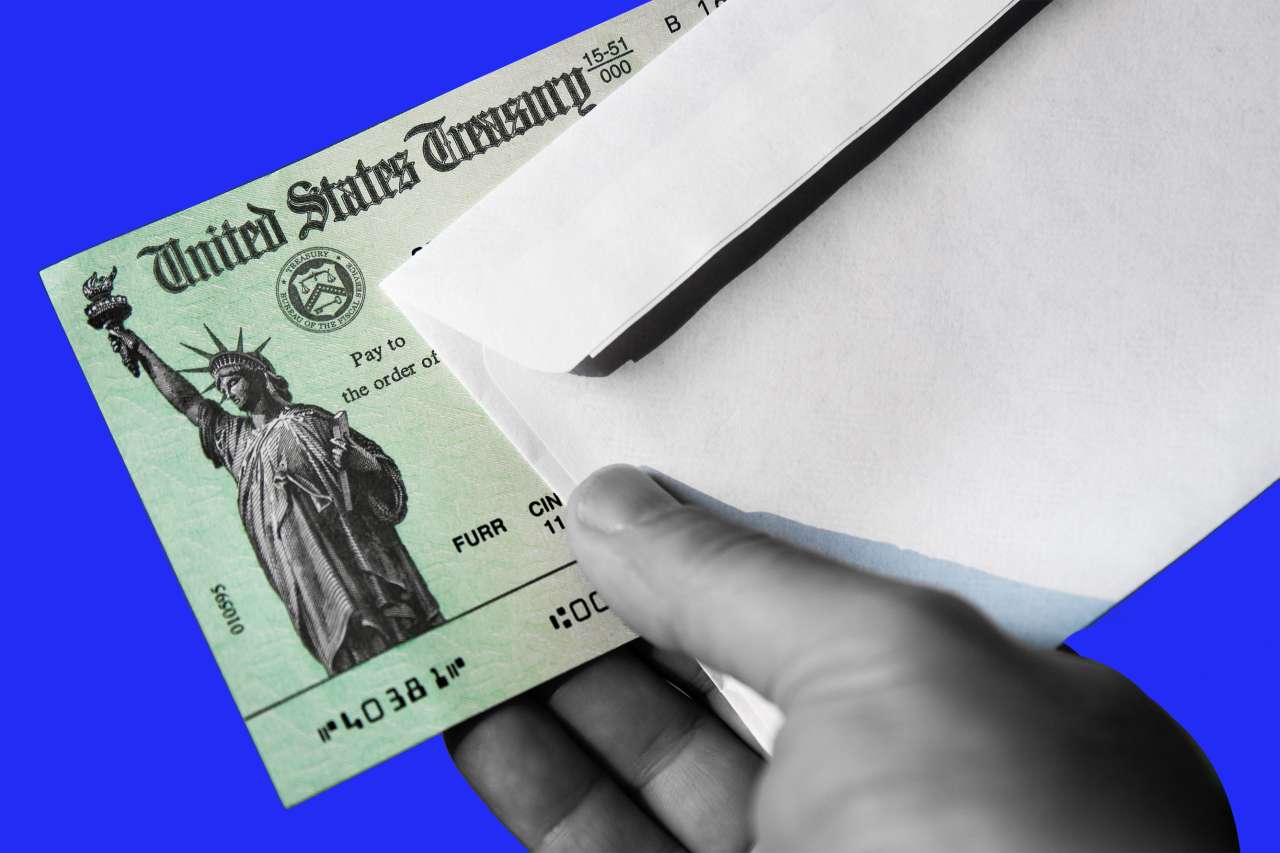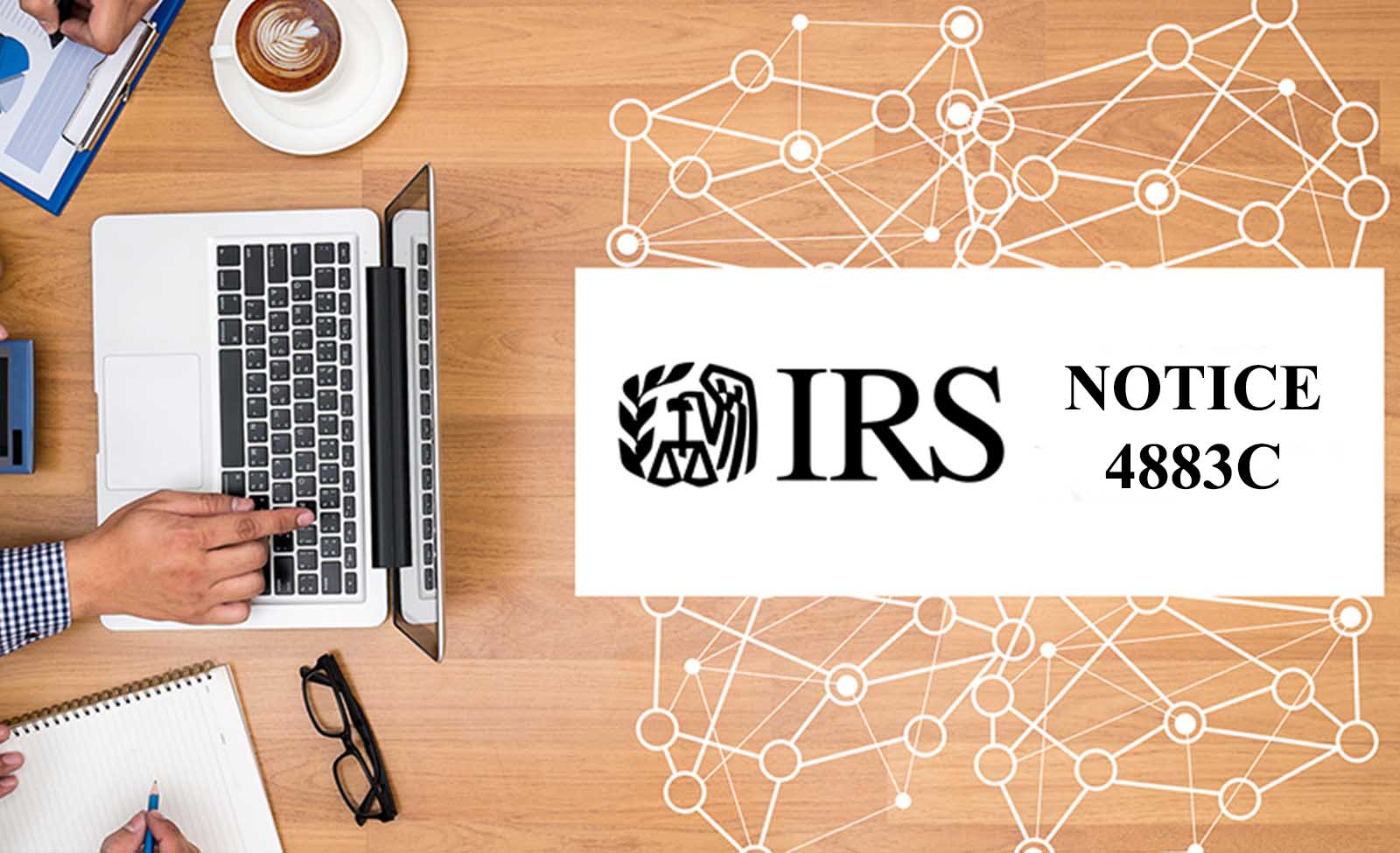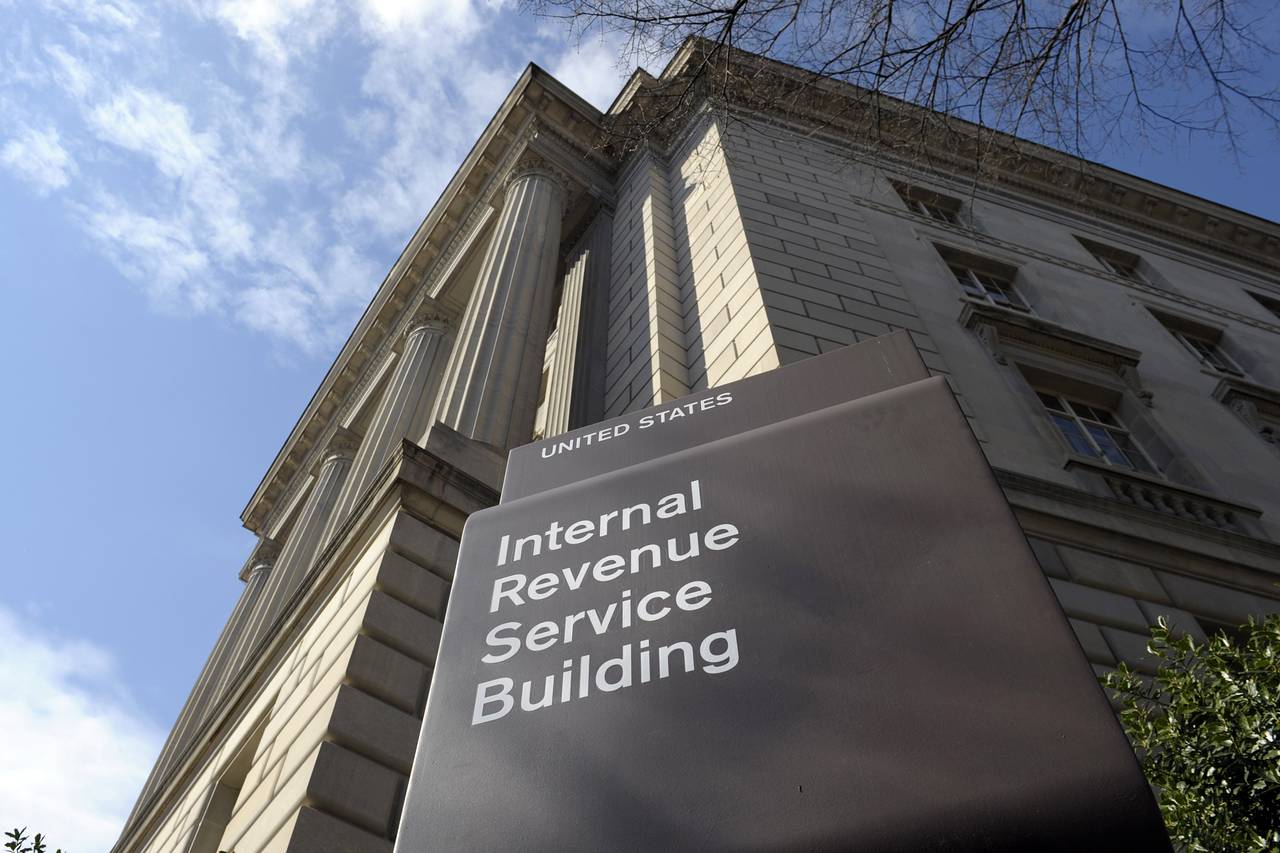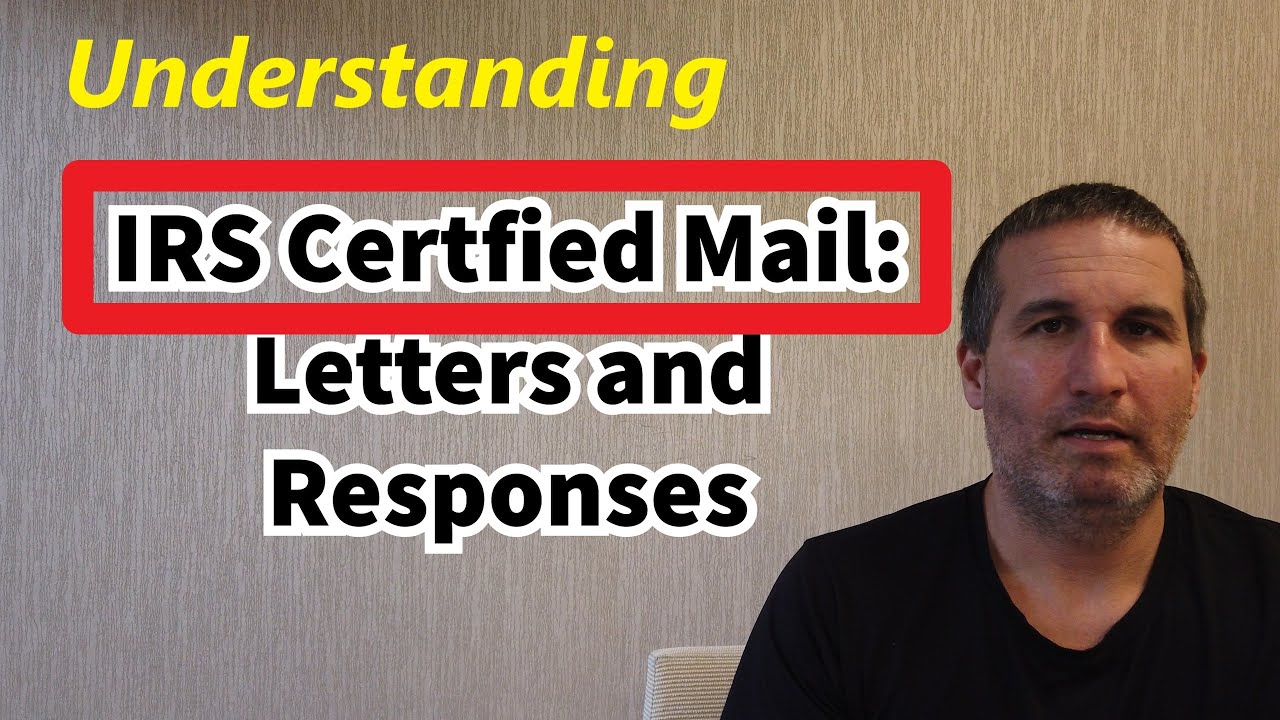

Finance
Why Did The IRS Send Me A Check?
Published: November 1, 2023
Find out why the IRS sent you a check and understand the financial implications. Get expert insights on finance and taxes.
(Many of the links in this article redirect to a specific reviewed product. Your purchase of these products through affiliate links helps to generate commission for LiveWell, at no extra cost. Learn more)
Table of Contents
Introduction
Have you ever received a check in the mail from the IRS and wondered why they sent it to you? It can be quite a surprise, especially if you weren’t expecting any money from them. There are various reasons why the IRS might send you a check, and it’s important to understand the underlying circumstances.
In this article, we will explore the possible reasons behind receiving a check from the IRS and shed light on the different scenarios that may lead to this unexpected financial windfall. Whether it’s a refund payment, a correction to your tax return, or something else entirely, we’ll explore the various possibilities and help you understand why the IRS may have sent you a check.
While it’s always exciting to receive unexpected funds, it’s vital to investigate the source and ensure that the money is rightfully yours. Understanding the reasons behind the IRS sending a check will provide clarity and peace of mind in managing your finances. So, let’s dive into the possible explanations for this unexpected monetary mail from the IRS.
Reasons for Receiving a Check from the IRS
There are several potential reasons why the IRS might send you a check. Let’s explore some of the most common scenarios:
- Refund Payment: One of the most common reasons for receiving a check from the IRS is a tax refund. This occurs when you have overpaid your taxes throughout the year, resulting in the IRS owing you money. They will send you a refund check for the excess amount.
- Correction to Tax Return: Another possibility is that the IRS has reviewed your tax return and made changes to it. This could be due to inconsistencies or errors that they have identified. In such cases, the IRS will send you a check if the changes result in you being owed additional money.
- Overpayment of Taxes: Sometimes, you may have made an overpayment of taxes in a previous year, and the IRS is only now returning the excess amount to you. This could be a result of errors or miscalculations on your part, or it could be due to changes in tax laws or regulations that have resulted in adjustments to your tax liability.
- Refunds and Deductions: If you have claimed certain deductions or credits on your tax return that you were initially not eligible for, the IRS may have disallowed those deductions or reduced the amount of credits. As a result, they may send you a check to reconcile the difference in the refund amount.
- Promotional or Incentive Checks: Occasionally, the IRS may send out promotional or incentive checks to encourage participation in certain tax programs or initiatives. These checks are not related to tax refunds or corrections, but rather serve as rewards for specific actions or behaviors that the IRS wants to incentivize.
- Unclaimed Property: In rare cases, the IRS may send you a check if they have identified unclaimed property or funds belonging to you. This could include tax refunds, retirement account distributions, or other types of financial assets that were not properly claimed or accounted for.
- Mistaken Identity: Lastly, it’s possible that the IRS has made a mistake and sent you a check that doesn’t actually belong to you. This can happen due to errors in their database or confusion with another taxpayer’s information. If you receive a check that you weren’t expecting and don’t believe is rightfully yours, it’s important to contact the IRS to rectify the situation.
Now that we’ve looked at the various reasons behind receiving a check from the IRS, it’s essential to review your specific circumstances and compare them to the possibilities outlined here. Understanding why the IRS sent you a check will help you make informed decisions regarding your finances and ensure that you handle the situation appropriately.
Reviewing Your Tax Return
When you receive a check from the IRS, it’s crucial to review your tax return to identify any potential reasons for the payment. Start by comparing the amount on the check to your filed tax return to determine if it aligns with any expected refunds or corrections. This review process will help you understand the specific adjustments the IRS has made and ensure the accuracy of the payment.
First, confirm whether you claimed any deductions, credits, or exemptions that may have triggered a refund. These could be related to education expenses, homeownership, child tax credits, or any other eligible tax benefits. Similarly, review any changes made by the IRS to your tax return that may have resulted in an adjustment to your refund amount.
If you receive a check without any corresponding information or explanation from the IRS, it’s essential to reach out to them for clarification. They can provide details about the specific reason for the payment, ensuring that it is not a mistake or an improperly addressed payment.
During your review, pay attention to any communication you may have received from the IRS prior to receiving the check. This could include notices, correspondence, or letters indicating the need for additional information or a potential refund payment. Understanding this context will help you piece together the puzzle and ensure that the check is legitimate.
If you used a tax professional or software to file your tax return, reach out to them for assistance and guidance. They can review your tax documents and compare them to the IRS check, providing further insight into the reason behind the payment.
Remember, the IRS will not typically send you a check without a valid reason. However, mistakes can happen, so it’s important to diligently review your tax return and seek clarification if needed. By taking the time to review and understand the details of your tax return, you can ensure that the check you received is accurate and rightfully yours.
Changes Made by the IRS
If you’ve received a check from the IRS, it’s possible that they have made changes to your tax return. The IRS has the authority to review and adjust tax returns if they discover errors, inconsistencies, or missing information. Let’s explore some common scenarios where the IRS may make changes to your return:
Mathematical Errors: The IRS carefully reviews each tax return for mathematical accuracy. If they identify any calculations or numerical errors, they will correct them and adjust the refund amount accordingly. This could result in a larger or smaller refund than initially anticipated.
Inconsistencies: The IRS cross-checks information reported on your tax return with data provided by employers, banks, and other financial institutions. If they find discrepancies or inconsistencies, such as unreported income or mismatched Social Security numbers, they may correct the errors and send you a check to reflect the revised refund amount.
Missing Forms or Schedules: Sometimes, taxpayers inadvertently forget to include necessary forms or schedules with their tax return. If the IRS receives additional documentation or information from third parties that should have been included in your return, they may make adjustments to your refund amount and send you a check to compensate for the difference.
Amended Returns: If you filed an amended tax return to make changes or corrections after submitting your original return, the IRS will review the amendments and make adjustments as necessary. If these adjustments result in a greater refund owed to you, they will send you a check to reflect the corrected amount.
Examination of Claimed Deductions or Credits: In some cases, the IRS may select your tax return for further examination if you have claimed certain deductions or credits that require further scrutiny. During this examination, they may make adjustments to these claimed items, resulting in changes to your refund amount. If the adjustments increase the refund, they will issue a check for the additional amount.
It’s important to note that if the IRS has made changes to your tax return, they will typically notify you through a letter or notice explaining the nature of the adjustments. This correspondence will provide you with the necessary information to understand why they sent you a check. Be sure to review any communication from the IRS carefully and seek professional assistance if you have questions or concerns.
Understanding the changes made by the IRS is crucial in managing your finances and maintaining compliance with tax regulations. Take the time to review the adjustments and ensure that all modifications are accurate and properly documented. This will help you stay in good standing with the IRS and avoid any potential issues in the future.
Overpayment of Taxes
One common reason for receiving a check from the IRS is an overpayment of taxes. This occurs when you have paid more in taxes throughout the year than your actual tax liability. The IRS will then refund the excess amount to you by sending a check.
There are a few situations that can lead to an overpayment of taxes:
Estimated Tax Payments: If you make estimated tax payments throughout the year, either as a self-employed individual or because your income is not subject to withholding, you may overestimate your tax liability. This can result in an overpayment and subsequently a refund from the IRS.
Withholding on Wages: If your employer withholds taxes from your wages based on an estimate of your tax liability, there’s a chance that they may withhold more than necessary. This can happen if you have multiple jobs, significant deductions, or other factors that reduce your overall tax liability.
Unclaimed Credits and Deductions: Sometimes, taxpayers are unaware of certain tax credits or deductions they are eligible for. As a result, they may not claim them on their tax return, leading to an overpayment of taxes. The IRS may identify these missed opportunities and issue a refund for the unclaimed amount. It’s crucial to explore all available tax credits and deductions to ensure you are not overpaying your taxes.
Changes in Tax Laws: Tax laws can change from year to year, and these changes may decrease your overall tax liability. If you’ve already paid taxes based on the previous tax laws and the IRS adjusts the calculation to account for the new laws, you may be owed a refund for the overpayment.
When you receive a check from the IRS due to an overpayment, it’s essential to review your tax return to understand the source of the overpayment. Carefully examine your income, withholding, estimated tax payments, and any claimed credits or deductions to verify the accuracy of the refund amount.
It’s worth noting that you can avoid overpayment of taxes by adjusting your withholding or estimated tax payments. By accurately estimating your tax liability, you can ensure that you’re not paying more than necessary throughout the year and potentially increase your take-home pay.
Understanding the concept of overpayment and receiving a refund from the IRS can provide insight into managing your taxes effectively. By staying mindful of your tax situation and making any necessary adjustments, you can optimize your financial resources and avoid unnecessary overpayment in the future.
Refunds and Deductions
When it comes to receiving a check from the IRS, one common reason is related to refunds and deductions. Let’s explore these concepts in more detail:
Tax Refunds: A tax refund occurs when you have paid more in taxes throughout the year than your actual tax liability. This can happen if you have too much tax withheld from your paycheck, if you qualify for tax credits or deductions that reduce your tax liability, or if you have overestimated your tax liability when making estimated tax payments. The IRS will refund the excess amount by sending you a check.
Tax Deductions: Tax deductions are expenses that you can subtract from your total taxable income, potentially reducing the amount of taxes you owe. Common deductions include mortgage interest, medical expenses, charitable contributions, and state and local taxes. If you claim deductions on your tax return that result in a refund, the IRS will send you a check for the additional amount once they review and verify your deductions.
It’s important to note that while deductions can lower your taxable income, they do not directly result in a refund. The refund occurs when your total tax liability, after deductions, is less than the amount you have already paid in taxes throughout the year.
When reviewing your tax return and the check received from the IRS, pay close attention to any claimed deductions and credits that may have influenced the refund. Ensure that you have proper documentation to substantiate your claimed deductions in case the IRS requests additional information or conducts an audit.
Remember, claiming deductions and credits can be a complex process, and it’s essential to understand the eligibility criteria for each deduction or credit you claim. Consult with a tax professional or use reputable tax software to ensure you are claiming all applicable deductions and maximizing your refund potential. This will help you avoid any errors or discrepancies that could lead to complications with the IRS.
Additionally, it’s crucial to stay informed about changes in tax laws that may impact available deductions and refund amounts. Tax laws can undergo revisions or expire, which can affect your eligibility for certain deductions or alter the calculation of your refund. Keeping up-to-date with any tax law changes will enable you to make informed financial decisions and maximize your tax benefits.
In summary, refunds and deductions play a significant role in the IRS sending you a check. Understanding how deductions work and properly claiming them on your tax return can potentially lead to a larger refund. Take the time to review your deductions, ensure proper documentation, and stay informed about changes in tax laws to optimize your tax benefits and receive the refund you deserve.
Promotional or Incentive Checks
One intriguing reason for receiving a check from the IRS is the possibility of it being a promotional or incentive check. While not as common as other reasons, the IRS occasionally sends out these checks to encourage participation in specific tax programs or initiatives.
These promotional or incentive checks are designed to reward taxpayers for taking certain actions that align with the IRS’s objectives. Some examples of situations where you might receive such a check include:
Tax Credits or Incentive Programs: The IRS may offer tax credits or incentives to encourage taxpayers to adopt energy-efficient practices, invest in renewable energy, or purchase electric vehicles. If you meet the eligibility criteria and have claimed these credits on your tax return, the IRS might send you a check as part of the incentive program.
Filing Compliance: The IRS has been known to send promotional checks to taxpayers who have timely filed their tax returns and exhibited a strong commitment to compliance. These checks serve as a form of recognition and encouragement to continue meeting filing obligations promptly and accurately.
Voluntary Disclosure Programs: In some cases, the IRS may offer voluntary disclosure programs for taxpayers who have previously underreported income or failed to disclose certain financial assets. If you participate in such a program and meet the requirements, the IRS may reward your cooperation with a promotional check.
Other Tax Initiatives: The IRS may introduce various tax initiatives and programs to achieve specific goals, such as promoting economic growth or improving tax compliance. If you participate in these initiatives and meet the necessary criteria, you may receive a promotional check as a reward for your contribution.
If you receive a promotional or incentive check from the IRS, it’s essential to carefully review any accompanying documentation or correspondence. This will provide information on the specific program or initiative for which the check was issued, as well as any requirements or further actions you need to take.
It’s worth noting that these promotional or incentive checks are separate from tax refunds or corrections. They are designed to encourage and reward certain behaviors or actions, rather than being directly related to your tax liability or refund calculations.
It’s always a good idea to consult with a tax professional or the IRS directly if you have any questions or concerns regarding promotional or incentive checks. They can provide the necessary guidance and clarification to ensure that you understand the purpose and legitimacy of the check you have received.
Receiving a promotional or incentive check from the IRS can be an unexpected and rewarding experience. Remember to use the funds wisely and to comply with any requirements or obligations associated with the program or initiative for which the check was issued.
Unclaimed Property
Receiving a check from the IRS could potentially be due to the identification of unclaimed property or funds that belong to you. Unclaimed property refers to financial assets and funds that have remained unclaimed by their rightful owners for an extended period of time. The IRS might send you a check if they have identified unclaimed property associated with your name.
Unclaimed property can take various forms, including but not limited to:
Tax Refunds: If you did not claim a tax refund in a previous year, the IRS may have identified this unclaimed money. They will send you a check to ensure that you receive the refund you are owed.
Retirement Accounts: If you have unclaimed funds in a retirement account, such as a 401(k) or Individual Retirement Account (IRA), the IRS could potentially send you a check if they have located these unclaimed assets.
Bank Accounts and Investments: If you have dormant bank accounts, abandoned stocks, unclaimed dividends, or other financial investments, the IRS may identify and send you a check for these unclaimed funds.
Life Insurance Policies: It’s not uncommon for individuals to be unaware of unclaimed life insurance policies in their name. The IRS, through its database and partnership with state agencies, may identify these unclaimed policies and send you a check for the proceeds.
Other Unclaimed Assets: The IRS can also identify other unclaimed assets such as uncashed checks, misplaced savings bonds, or lost refund checks. They will send you a check to reunite you with these unclaimed funds.
If you receive a check from the IRS related to unclaimed property, it’s important to ensure that the funds are rightfully yours. This includes verifying your identity, confirming the accuracy of the unclaimed property, and complying with any requirements or procedures outlined by the IRS.
To prevent unclaimed property situations in the future, it’s advisable to keep track of your financial accounts, update your contact information with respective financial institutions, and regularly review your tax returns for any unclaimed refunds or credits.
In cases of unclaimed property, it’s crucial to consult the appropriate authorities or professionals for guidance. They can help you navigate the process, resolve any discrepancies, and ensure that you receive and claim the unclaimed property rightfully and accurately.
Receiving a check from the IRS related to unclaimed property can provide a valuable opportunity to reclaim lost funds and assets. Take the necessary steps to investigate these funds properly, ensuring that you benefit from the unclaimed property to which you are entitled.
Mistaken Identity
In some rare instances, receiving a check from the IRS may be the result of a case of mistaken identity. The IRS processes a vast number of tax returns and financial transactions, and errors can occur, leading to checks being sent to the wrong person.
If you receive a check from the IRS that you weren’t expecting and believe is not rightfully yours, it’s important to take the necessary steps to rectify the situation:
Contact the IRS: Reach out to the IRS as soon as possible to report the discrepancy and notify them that you have received a check in error. Provide them with all the relevant details, including the check number, amount, and any other pertinent information that can help them investigate and resolve the situation.
Do Not Cash or Spend the Check: It’s crucial to refrain from cashing or spending the check until the issue is resolved. By doing so, you avoid any potential legal or financial complications and ensure that the funds are returned to their rightful owner.
Cooperate with the IRS: Work closely with the IRS throughout the investigation process. Provide any requested documentation or information that can help them verify your identity and determine the correct recipient of the funds.
Keep Detailed Records: Maintain a record of all communication, including dates, names, and reference numbers. This documentation can be helpful in case there are any further issues or disputes in the future.
It’s important to remember that mistakes can happen, and the IRS is not infallible. By promptly reporting and cooperating with the IRS, you can help resolve the mistaken identity situation efficiently and ensure that the funds are returned to their rightful owner.
If you believe that your identity has been compromised or that someone has fraudulently used your information to receive a check from the IRS, you should also take immediate action to safeguard your identity. Contact the IRS and follow their recommended steps to protect yourself from further fraud or unauthorized use of your personal information.
Mistaken identity cases with the IRS are relatively rare, but it’s essential to address them diligently and promptly. By reporting the error and cooperating with the IRS, you contribute to maintaining the integrity of the tax system and ensuring that funds are distributed accurately and fairly.
Resolution and Next Steps
When you receive a check from the IRS and have determined the reason behind it, it’s important to take appropriate steps to resolve the situation and manage the funds properly. Here are some actions you can take:
Confirm Legitimacy: Ensure that the check you received is legitimate and rightfully belongs to you. Review your tax return, any correspondence from the IRS, or other documentation to verify the reason for the payment. If you have any doubts about the legitimacy of the check, contact the IRS directly to seek clarification.
Deposit or Cash the Check: Once you have confirmed that the check is legitimate, you can deposit it into your bank account or cash it at a financial institution. Follow the appropriate procedures for depositing or cashing the check according to your bank’s policies.
Review Your Financial Situation: Take the opportunity to assess your financial situation and determine the best use for the funds. If the check is a tax refund or a payment related to unclaimed property, consider using the funds to pay down debt, build an emergency fund, contribute to retirement accounts, or invest in assets that align with your financial goals.
Plan for Future Taxes: If the check is a tax refund, consider adjusting your tax withholding or estimated tax payments to align with your anticipated tax liability for the following year. This will help ensure that you don’t overpay your taxes and can potentially avoid a large refund or underpayment in the future.
Consult with Professionals: If you have any concerns or uncertainties regarding the check or your tax situation, consider consulting with a tax professional or financial advisor. They can provide personalized guidance based on your specific circumstances and help you make informed decisions about managing the funds.
Maintain Records: Keep copies of all relevant documentation related to the check and any correspondences with the IRS. These records will be valuable for future reference, tax filing, or any potential audits.
Report Errors or Issues: If you notice any errors or discrepancies related to the check, such as incorrect payment amounts or missing information, contact the IRS immediately to rectify the situation. Prompt reporting of any issues will help ensure a timely resolution.
Remember, it’s important to follow the appropriate steps and handle the funds responsibly. If you have any doubts or questions about the best course of action, seek professional advice to make informed financial decisions.
By resolving the matter and taking diligent steps to manage the funds, you can ensure that the check from the IRS is utilized effectively and contributes to your financial well-being.
Conclusion
Receiving a check from the IRS can be a surprising and sometimes puzzling experience. Understanding the reasons behind it is crucial to ensure that the funds are rightfully yours and to handle them responsibly. Throughout this article, we explored various possible reasons for receiving a check from the IRS, including tax refunds, corrections to tax returns, overpayment of taxes, promotional or incentive checks, unclaimed property, and cases of mistaken identity.
When you receive a check from the IRS, it’s important to review your tax return, correspondences, and any accompanying documentation to understand the source of the payment and to verify its legitimacy. This will enable you to properly manage and utilize the funds in a way that aligns with your financial goals.
If you encounter any discrepancies or have concerns about the check, it’s advisable to reach out to the IRS for clarification. They can provide the necessary guidance and assist in resolving any issues or errors that may have occurred.
Maximizing your understanding of the tax system, staying informed about changes in tax laws, and seeking professional advice when needed are key factors in effectively managing your tax obligations and potential refunds.
Remember, receiving a check from the IRS is an opportunity to assess your financial situation, make proper adjustments, and use the funds to improve your financial well-being. Consider saving, investing, or paying down debt to maximize the impact of these funds on your overall financial health.
Lastly, maintaining accurate records, being proactive in addressing any errors or issues, and staying compliant with tax laws will not only help you navigate the intricacies of the tax system but also contribute to your peace of mind in managing your finances.
In summary, understanding the reasons behind receiving a check from the IRS and taking appropriate steps to resolve any discrepancies will ensure that you handle the funds responsibly and optimize your financial situation. By staying informed, seeking guidance when needed, and maintaining compliance, you can navigate the world of taxes with confidence and make the most of any unexpected financial windfalls that come your way.














